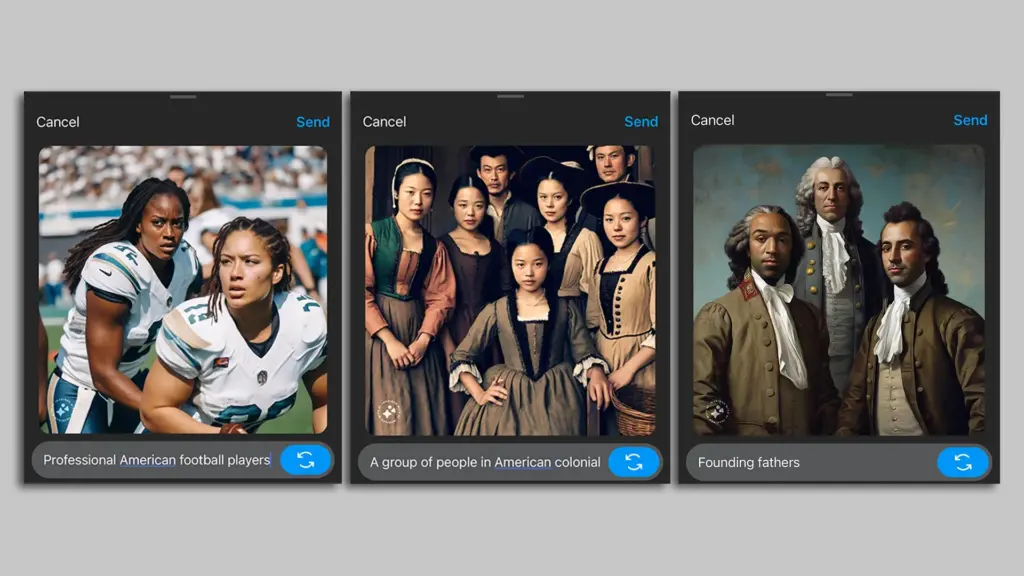Meta’s AI image generator, Imagine, has been accused of producing ahistorical pictures, similar to Google’s Gemini AI, sparking concerns about bias and historical accuracy in AI-generated content.
Meta’s AI image generator, Imagine, has recently come under fire for producing ahistorical images, following a similar controversy involving Google’s Gemini AI. A report from Axios revealed that Meta’s Imagine generated images that were strikingly similar to those produced by Google’s Gemini, raising questions about bias and historical accuracy in AI-generated content.

The report highlighted that a request for “Founding Fathers” in Meta’s Imagine resulted in a diverse group of people, while a prompt for “A group of people in American colonial times” returned an image of all Asian women. These findings have led to accusations that Meta’s AI is “woke,” with right-wing commentator Aaron Ginn stating, “Meta AI is woke, just like Google’s AI. It makes up history to stay on message.”
However, it appears that Meta may have addressed the issue over the weekend, as subsequent requests for the same prompts resulted in more historically accurate images. For instance, a request for an image of “the founding fathers” returned a more historically accurate picture, while a search for “Professional American football players” produced images that were in line with those found on Google Image search.
The controversy surrounding Meta’s Imagine comes on the heels of Google CEO Sundar Pichai’s admission that the company “got it wrong” after its Google Imagen 2 text-to-image model generated images of non-white people in Nazi uniforms. Pichai described the results as “problematic” and acknowledged that they had offended users and showed bias. The incident sparked a strong backlash, drawing the attention of the news media and high-profile social media accounts.
Google quickly moved to address the issue, and it appears that Meta has also acted swiftly to rebalance its AI image generators. The speed at which these generators’ output can be tweaked is quite remarkable.
Meta’s Imagine is built on artificial intelligence software called Emu, which can be found in Facebook DMs by typing “/imagine” and then tapping “imagine.” The technology is capable of creating images based on increasingly wild ideas, drawing from billions of public visible Facebook and Instagram images to generate its content.
The recent controversies surrounding AI image generators highlight the challenges that tech companies face in balancing diversity and historical accuracy in AI-generated content. While AI has the potential to revolutionize the way we create and consume content, it is clear that more work needs to be done to ensure that these tools are fair, accurate, and unbiased.
In response to the controversy, Meta has not yet provided a comment. However, the company has previously stated that it is committed to improving its AI tools as they evolve and more people share their feedback. As AI continues to advance and become more integrated into our daily lives, it is crucial that companies like Meta and Google address these concerns and work to create AI systems that are fair, accurate, and unbiased.
Source: Axios
Grow your business with AI. Be an AI expert at your company in 5 mins per week with this Free AI Newsletter